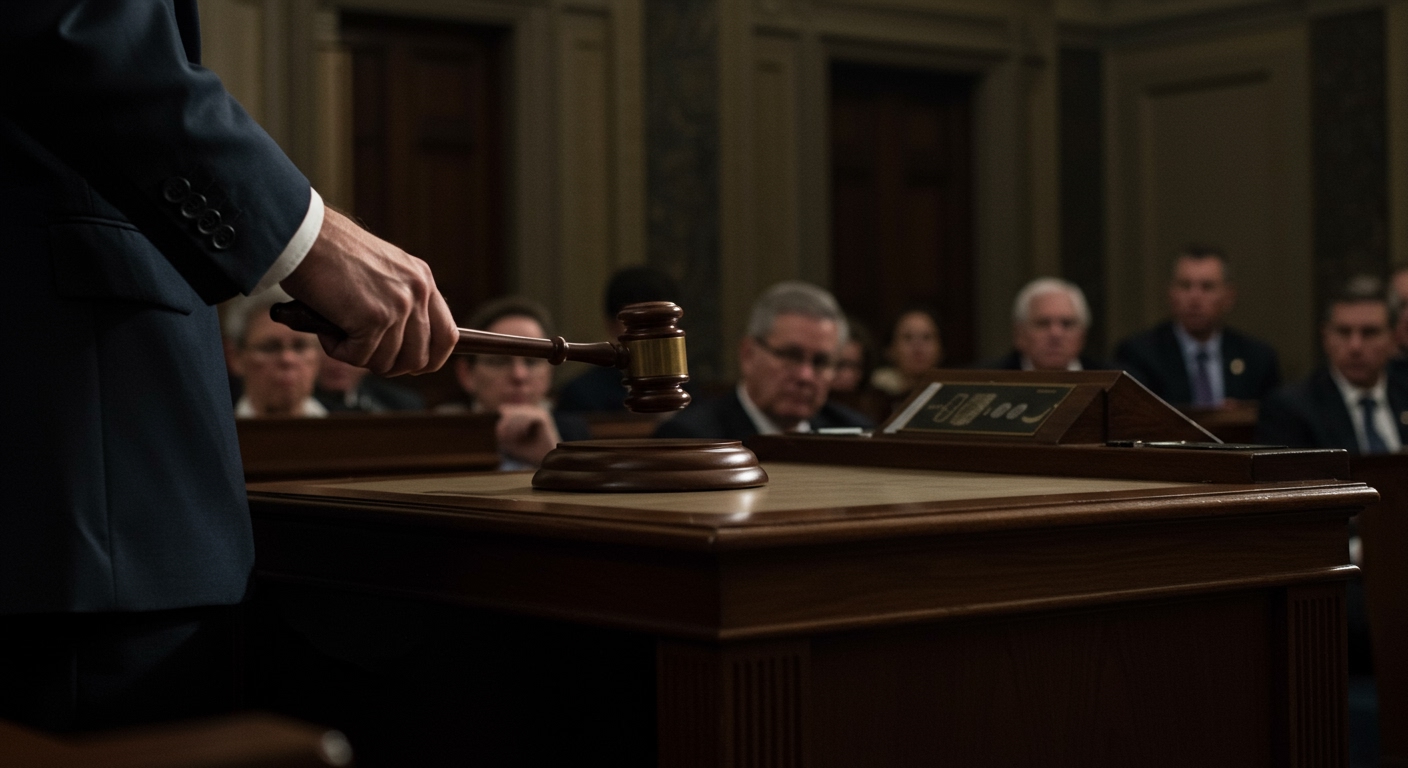Washington, D.C. – In a move poised to fundamentally alter the trajectory of artificial intelligence development and deployment in the United States, the U.S. Congress today, March 19, 2025, passed the “Artificial Intelligence Accountability Act of 2025.” Known formally as H.R. 789, the bipartisan legislation marks the most significant federal effort to date to establish comprehensive regulatory standards for AI systems used by the public, sending immediate ripples throughout the technology industry.
The bill, championed by a cross-aisle coalition led by Senator Maria Rodriguez and Representative John Chen, garnered sufficient support in both chambers following months of intense debate, expert testimony, and stakeholder consultations. Its passage signals a growing consensus among lawmakers that federal oversight is necessary to address the potential societal risks posed by increasingly powerful AI technologies.
Key Provisions Detailed
The “Artificial Intelligence Accountability Act of 2025” introduces several stringent requirements aimed at enhancing public trust and mitigating potential harms from AI. At its core, the bill establishes new federal standards focusing on transparency, data usage practices, and the critical task of bias detection in AI systems that are deployed publicly. These standards are designed to provide consumers and regulators with greater insight into how AI models function and interact with user data, moving away from historically opaque algorithmic processes.
A cornerstone of H.R. 789 is the mandate for mandatory independent audits for AI applications deemed “high-risk.” While the specific criteria for classifying AI systems as high-risk will be further defined by regulatory bodies appointed after the bill becomes law, it is widely anticipated that this category will include applications in sensitive areas such as employment, credit and lending, housing, criminal justice, and healthcare. These audits, to be conducted by accredited third parties, will assess systems for compliance with the new transparency, data usage, and bias standards, as well as overall safety and effectiveness. The findings of these audits are expected to be made publicly available, fostering greater accountability.
Furthermore, the legislation imposes steep penalties for non-compliance. Companies found to be in violation of the act’s provisions could face significant financial fines, potentially running into the millions or even billions of dollars depending on the severity and scope of the infraction. The threat of substantial penalties is intended to serve as a powerful deterrent, encouraging proactive compliance measures and responsible AI development practices across the industry.
Impact on Tech Giants
The ramifications of H.R. 789 are expected to be particularly significant for major technology companies that heavily rely on AI for their products and services. Giants like Google, Microsoft, and Meta, whose operations span search algorithms, social media content moderation, cloud computing AI services, and advanced research initiatives, will face considerable challenges in adapting to the new regulatory landscape. Compliance will likely necessitate substantial investments in internal auditing capabilities, data governance structures, and the development of sophisticated tools for bias detection and mitigation. Legal and compliance teams within these corporations are already reportedly reviewing the bill’s text to assess the full scope of its impact and prepare for the implementation phase.
Industry Reaction Mixed
The response from the technology sector has been varied, though notably cautious. Industry groups, such as the Tech Innovators Association, have voiced concerns that the stringent regulations could stifle innovation. They argue that excessive compliance burdens, the cost of mandatory audits, and potential legal liabilities may slow down the pace of AI development and deployment, potentially putting U.S. companies at a disadvantage globally. Representatives from the association have called for careful implementation of the rules to ensure they do not become overly prescriptive or burdensome, hindering the very progress the technology promises.
Consumer Advocates Applaud Passage
In stark contrast, consumer advocacy organizations have widely hailed the passage of H.R. 789 as a landmark achievement and a critical step forward for digital rights. These groups have long raised alarms about the potential for algorithmic bias to perpetuate and even amplify societal inequalities, the lack of transparency in how AI systems make decisions impacting individuals’ lives, and the privacy implications of vast data collection used to train AI models. They view the bill as essential for establishing baseline protections for citizens in an increasingly AI-driven world, ensuring greater fairness, accountability, and control over their digital interactions.
The Road Ahead
Following its passage through Congress on March 19, 2025, the bill now heads to the White House for presidential approval. President Thompson is widely expected to sign the “Artificial Intelligence Accountability Act of 2025” into law early next month. Upon signing, federal agencies will be tasked with developing specific rules and guidelines for implementing the bill’s provisions, including defining what constitutes a “high-risk” AI application and establishing the criteria for independent audits. This regulatory process is expected to take several months, after which companies will face deadlines to achieve compliance. The passage of H.R. 789 marks the beginning of a new era in AI governance, signaling a shift towards greater oversight and accountability for one of the most transformative technologies of our time.














